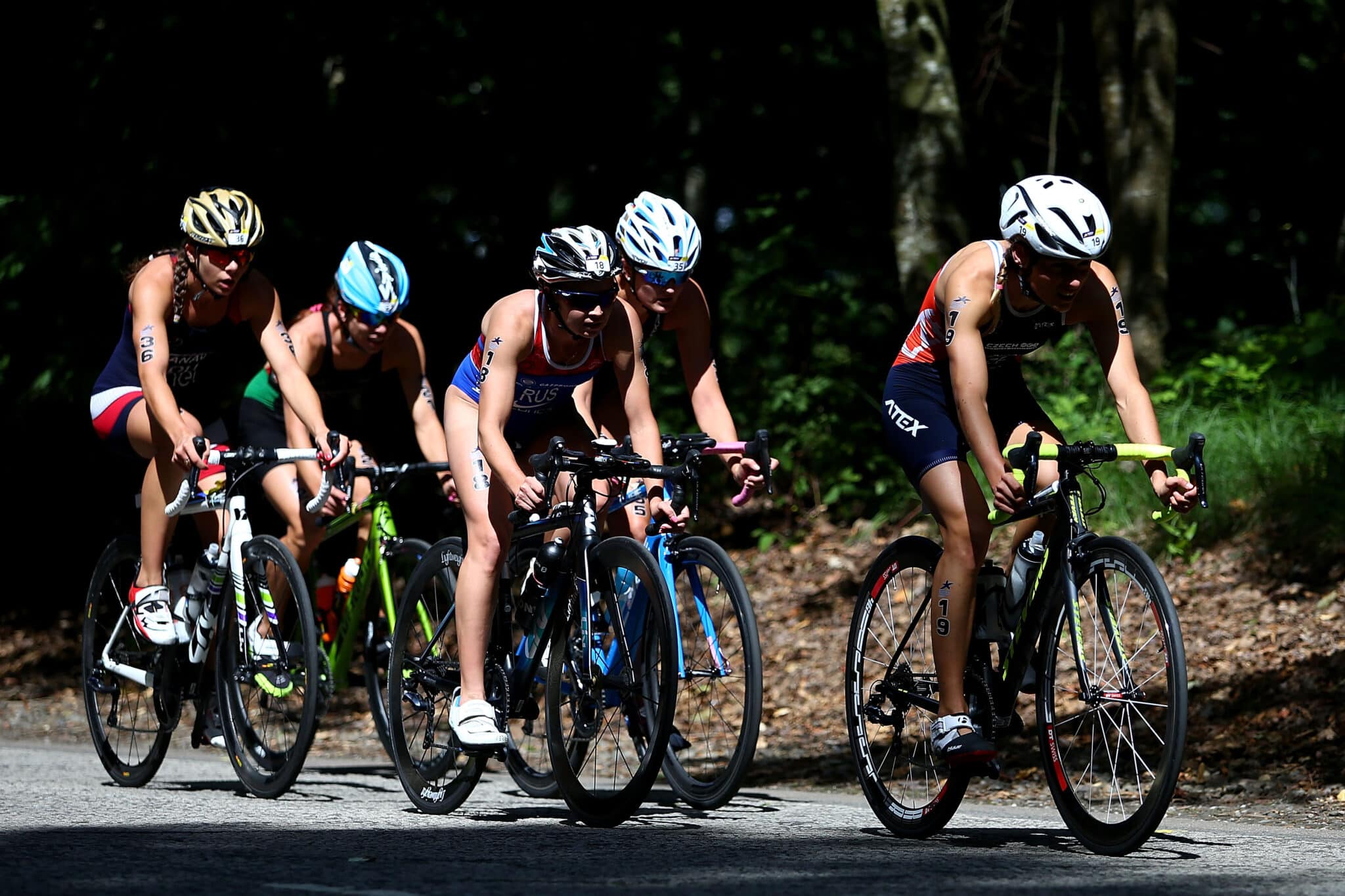British Triathlon accused of transphobia ‘plain and simple’ by trans triathlete
Author: Amelia Hansford
A general view as athletes enter the water during the Women’s Triathlon on Day Eight of the European Championships Glasgow 2018 at Strathclyde Country Park on August 9, 2018 in Glasgow, Scotland. (Photo by Jack Thomas/Getty Images)
Trans athlete Chris Mosier has accused British Triathlon of “plain and simple” transphobia after its move to ban trans women from women’s races.
The governing body is the first in the UK that to ban trans women from racing in the female category at elite and grassroots level.
Instead, British Triathlon will banish trans athletes to an “open category” for “all individuals including male, transgender and those non-binary who were male sex at birth.”
In a Twitter thread, American triathlete Chris Mosier responded to the ruling.
“No trans woman currently competes or has EVER competed in elite-level triathlon in any country, including Great Britain, England, Scotland or Wales,” he wrote,
“British Triathlon’s move to ban trans women doesn’t address any real issue; it’s discrimination plain & simple.”
As far as I know, no trans woman currently competes or has EVER competed in elite level triathlon in any country, including Great Britain, England, Scotland or Wales. British Triathlon’s move to ban trans women doesn’t address any real issue; it’s discrimination plain & simple.
— The Chris Mosier (@TheChrisMosier) July 6, 2022
As reported by The Guardian, the policy will apply at an international level. British Triathlon board members have decided that any trans athletes from outside the UK who wish to compete in Great Britain will not be allowed to participate in the female category.
Despite open categories being fairly common in other sporting events, Mosier points out that these are usually optional for athletes should they want to participate,
He added that “forcing athletes to participate there further separates athletes from their peers”.
Mosier said the policy shows that British Triathlon not only “tolerates transphobic behaviour” but is “leading the way” for it.
“Policies that ban trans people encourage transphobia towards trans people,” he said.

British Triathlon chief executive Andy Salmon has claimed the move is to keep the sport inclusive to everyone.
“Our sport was founded relatively late in the 1970s,” he said. “And with gender equity at its core, this is something that we’re incredibly proud of and, indeed, we’re incredibly precious about.”
The idea that trans women have an explicit advantage in competitive sports has been a longstanding debate for many years, with groups including those from the so-called gender-critical movement saying that trans women are “compromising” sport for cis women.
Scientific experts are divided on the subject, however. Several researchers, including endocrinologist Dr Ada Cheung, have said these kinds of policies are not usually “based on concrete evidence”.
Speaking to Sydney Morning Herald on June 21, Cheung addressed a similar ruling by the swimming governing body FINA that effectively banned trans women from female competitions.
“We actually don’t know if there’s a biological advantage for transgender women over cisgender women because the science is not clear,” Cheung said.
The international swimming body announced the policy – which bans trans women who did not medically transition before age 12 from elite competitions – on June 20 in an extraordinary general congress in Budapest.
Mosier spoke to PinkNews on FINA’s decision on June 21, saying that it appeared to have been influenced by “misinformation, prejudice and convincingly crafted ‘what if’ scenarios.
“The policy is not in line with the 2021 International Olympic Committee framework on fairness, inclusion and non-discrimination on the basis of gender identity and sex variations, and is a considerable step backwards for all women in sport,” he added.
The American triathlete, who started his transition in 2010, has been a major advocate for trans people in sporting competitions.
He believes that inclusive events pave the way for further trans acceptance, as he explained: “The constant narrative of trans people not belonging in certain spaces, like those within sport, sets us a dynamic in the real world out of the pool and off the court or field where we are the target of further harm.
“It’s not just about sports; it’s about trans people’s abilities to be themselves and live in a world that increasingly tells us we do not belong.”
Actual Story on Pink News
Author: Amelia Hansford




